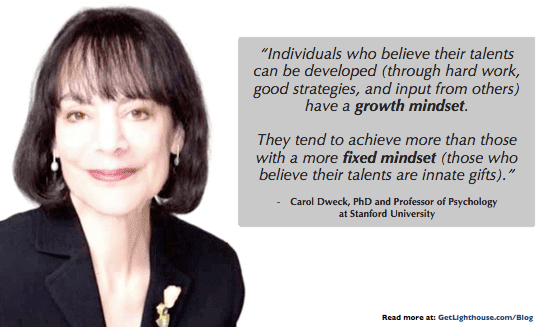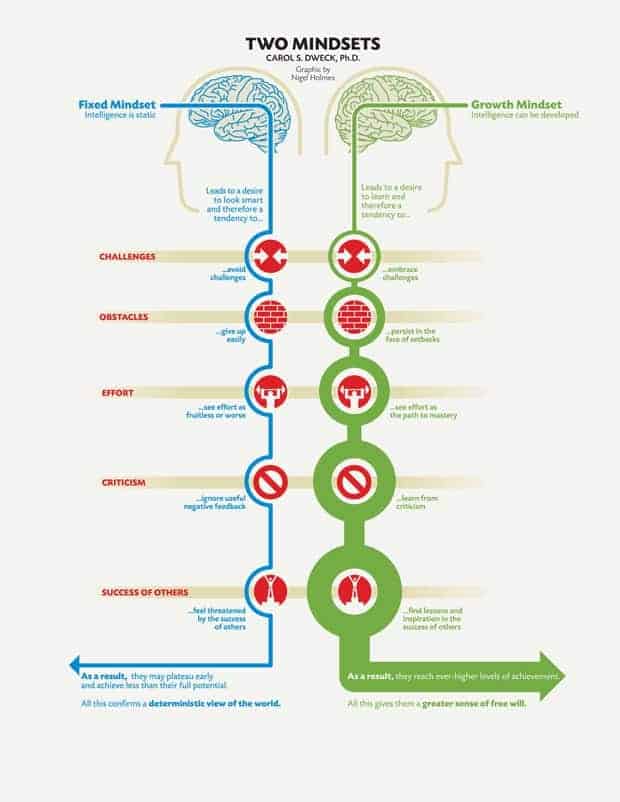Have you found the perfect mentor, but are unsure of what steps to take next? What questions can you ask them to get the most out of the time you have together? What areas should you focus on to accelerate your growth?
Recently, we wrote a post on everything you need to know about where to find mentors, what qualities to look for in them, and how to approach them. It’s one of the most comprehensive mentorship starter kits you’ll find.
Today, we expand on our guide and share 37 questions you can ask your mentor to fully develop your relationship with them, and maximize your growth as a leader.

37 Questions to Ask a Mentor to Supercharge Your Career Development
If you need a reminder of what a mentor can do to boost your career, look no further.
Research has shown that people with a mentor exhibit greater confidence, earn promotions more quickly, and find jobs easier than their non-mentored colleagues. Wouldn’t we all like that?
That’s why in our previous post on mentors, we covered topics including:
- How you can find a mentor
- Three qualities to look for in a mentor
- How to approach them
- How to make the most of the relationship you have with them
With that in mind, it’s vital to know what to ask your mentor to make sure you’re putting the relatively limited time you have together to good use. We’ve compiled 37 questions you can ask about various topics to help you prepare.

1. Questions about improving your soft skills
"Success in dealing with people depends on a sympathetic grasp of the other person’s viewpoint." – Dale Carnegie
One of the biggest challenges of growing as a manager is finding ways to improve your soft skills. Unlike with an IC role, being a manager is much more of a people job and requires more soft skills as you progress through your career.
In fact, research conducted by Harvard University, the Carnegie Foundation, and Stanford Research Center uncovered that 85% of job success comes from having well‐developed soft and people skills. In contrast, only 15% of job success comes from knowledge and technical skills.
Unfortunately, soft skills aren’t something you can learn from online courses or books alone. A big part of learning them is through experience. For many managers, mastering these skills is thus a very steep learning curve.
This is where the help of a mentor can be priceless. They can give you advice on exactly how to approach particular situations and share examples of how they’ve improve their vital soft skills.
There are many soft skills you need to learn to become a great manager, so make sure you get their input on the following topics:
- What are your favorite tips for having great 1:1 meetings?
- How can I get buy-in for my ideas?
- When have you had buy-in go wrong and what did you learn from it?
- How do I become a better listener?
- What are the best ways to build rapport with my team?
- What can I do to become a more empathetic leader?
- What other soft skills do I need to master to be a great manager?
Your mentor will likely know all about the different subtleties of soft skills and connecting with your team on a more human level. They can share what’s worked for them, as well as key, hard-earned lessons from their own mistakes. Both can help you grow.
If you take advantage of that and ask them the right questions, you’ll be improving in areas that have been proven to separate great managers from average ones.
And to complement learning from their stories and example, here are resources you can check out to work on these areas on your own:
- Free One on One Meetings Template
- How to Get Buy in at Work: Making your projects more successful
- How Managers can be more Effective Listeners to Better Lead their Teams
- 102 Ways How to Build Rapport with Anyone at Work
- 3 Ways to Better Manage Up By Developing Empathy

2. Questions about working on your growth mindset
“Learning never exhausts the mind.”― Leonardo da Vinci
Adopting a growth mindset should be one of your highest priorities if your aim is to keep getting promoted in your career.
According to Stanford psychologist Carol Dweck and her TED talk, if you believe that people (including yourself) can't change or improve, you’ll never be able to take the initiative for your own or your team’s growth.
Conversely, if you believe in continuous improvement, are willing to face challenges head-on, and persist in the face of setbacks and criticism, you’ll open up a sea of opportunities for yourself.
Here’s a great visual of how a growth mindset works compared to a fixed one:
As you can see, people with a growth mindset are always looking for new sources of inspiration to learn from.
And having a mentor is a great way to feed a hungry mind and find untapped opportunities to grow yourself and your team. You can ask your mentor the following questions to make the most of your growth mindset:
- What are the best leadership books you recommend?
- What are the best management courses/resources you think I would benefit from?
- How do I help my team improve their skills and grow when I’m not an expert?
- How do I grow my team when I can’t promote them?
- How can I become a better coach to my team?
- How do I recognize and develop potential future leaders on my team?
With answers to these questions, you’ll keep evolving as a leader and find new ways to help your team grow, too.
And to get more ideas to complement what they tell you, check out these links below:
- The 10 Best Books For New Managers On Leadership And Self-Improvement
- How to grow your team when you can’t promote them
- Books for Managers: 3 Books Every Leader Should Read

3. Questions about productivity
“Time management is an oxymoron. Time is beyond our control, and the clock keeps ticking regardless of how we lead our lives. Priority management is the answer to maximizing the time we have.” - John C Maxwell, best-selling author, speaker, & consultant on Leadership.
As a manager, there is always more to be done than what fits in your schedule. And while you may be keeping your to-do list updated, how can you make sure you’re prioritizing the right things every day?
Well, for starters, if you waste a lot of hours doing administrative things like updating Google Docs and Sheets or other rudimentary tasks that can be outsourced, you're not making the most of your time.
In that case, you’re also not being a multiplier for the rest of your team, which is a key component of growing as a leader.
How do you value your time?
Think of it this way - if you earn $100,000 per year and work 50 hours a week for 50 weeks a year, your time is worth $40 per hour.
That means even a few hours a week spent on administrative work and repetitive tasks can lead to thousands of wasted dollars on something an app or an assistant can do for a fraction of the cost.
As a manager, you should always think of ways to maximize your own time as well as make sure your team is as productive as possible.
Having a mentor can go a long way in helping you do this - their experience can help you tell if you’re micromanaging or getting too caught up on things you shouldn’t really be doing.
They’ve been in your shoes so they can probably share systems and ideas for prioritizing your work well. They can also help you think about ways to be more productive and be a multiplier for your team.
To find out more about how to do that, you can ask them the following questions:
- What are some techniques I can use to better manage my time?
- How do I become better at prioritizing my responsibilities?
- What habits should I adopt to be a more effective leader? Which ones should I avoid?
- How can I organize my time to become a multiplier for my team?
- What are key actions I should take to help my team get more done?
- How do I know if a meeting is worthwhile, or I should cancel it?
- How do I have effective meetings?
- When would you recommend we use asynchronous communication?
If you’re interested in more ways for prioritizing your time and being a multiplier for your team, check out these links:
- Why Priority Management Trumps Time Management - Lighthouse Case Studies
- Why Work-Life Balance Beats the Hustle Hype for Great Teams
- Your Guide to Synchronous vs. Asynchronous Communication
- 10 tips for conducting effective meetings
- Tips for remote management from a veteran

4. Questions about your career development
As a leader, you need to take charge of your own career growth. That usually means asking the right questions in your 1 on 1s with your manager to help open up your career to develop in a variety of ways.
As great as that sounds, it sometimes involves facing some hard truths. You may not always love what your manager has to say about your skills.
Despite that, you need to be brave and show initiative and a willingness to work on your weaknesses. And there’s nothing better to prepare you for that than talking to a mentor.
Your mentor will be able to share an objective opinion about your skills that isn’t influenced by company politics or team dynamics.
They’ll be able to tell exactly what you need to learn to take your career and skills to the next level. This way, you’ll know what to expect when you talk to your manager about career development in your 1:1s. You’ll be better prepared for difficult conversations and show your manager you take your own development seriously.
Try asking your mentor some of these questions to gain a better understanding of the skills you need to take things to the next level:
- What are the most important areas I need to master to get promoted to the role I want?
- What skills gaps do you think I have?
- What are key habits you feel make someone successful in [your new role/ the role you want next]?
- What do you think it would it take for my manager to feel I'm ready for [desired role/promotion]?
- What do you feel are my strengths? How could those help the team more and help me advance in my career?
- How can I start to make progress on the areas I need to work on?
If you need more resources on driving your own career growth, check out these posts:
- How Employees Can Drive Their Own Career Growth
- The 8 Best Professional Development Goals for Managers
- Career Development Plans: What Managers Struggle with Most
- How to Evolve Your 1-on-1s Over Time for Maximum Value

5. Questions about networking
While most of what you hear from your mentor will be based on their own experience, there’s another huge benefit you can gain through your relationship with them - their network.
As you build trust with them and ask more questions, they may not have all the answers themselves. Or, they may want you to hear other perspectives. Either way, it presents an opportunity for them to open their network to you.
They’ll be able to introduce you to more people who’ve had a career path similar to yours, share professional events you could attend, and guide you on how to engage people more effectively and what to ask them.
Connections make the difference
In his book, “The Glass Bead Game”, Nobel prize winner Hermann Hesse explains the best way to gain knowledge is to build connections between your experiences. He notes how the best painters are usually avid readers or musicians, always looking to soak up new ideas from worlds other than their own.
He also adds that these multi-disciplinarians have historically spent time together in artist cliques that grew into movements like impressionism, cubism, and others.
Similarly, when you expand your network, you’re giving yourself new perspectives and ideas. However, to truly be successful, you need to find the right people to meet.
A mentor can help you with that, as they’ve likely built a lot of professional relationships to get to where they are today. Use the time you spend with them to ask them how you can expand your network to accelerate your growth. You can ask one of the following questions:
- What events/conferences/meet-ups do you recommend for expanding my network?
- Who in your network do you think could help me grow as a manager? How can I help you make an introduction?
- What are some of the best online sources to find peers and exchange ideas with them?
- What are some good networking questions to ask to spark interesting conversations?
- How do you decide if an event is worth your time?
By relying on your mentor’s experience, you’ll be taking a shortcut to the many relevant circles, events, and networks that can shape your leadership style and give you new opportunities to learn.

6. Questions to help you learn from your mentor’s career
Your mentor’s experience is unique. Even if you cover all of the areas we’ve mentioned today, there are still so many other things you can uniquely learn from them if you just ask.
Use the time you have together to build a deeper bond with them and find out about some of their personal experiences that have influenced them the most.
Even if they’re not directly applicable to you, they’ll likely help you see the bigger picture and understand the process of becoming a better manager. You’ll also understand how the steps in their careers influenced who they are today.
Here are some questions you can ask that focus specifically on your mentor’s career:
- What are some of the most important habits that have turned you into the manager you are today?
- What are the biggest mistakes you’ve learned from?
- Is there anything you wish you’d have done differently in your career? What would you change?
- Who are some of the most important people who influenced you and your way of thinking? What did you learn from them?
- What are some unique things you did that set you apart from the others in your career?
Touching on their career specifically will allow you to complement what you learn through other questions in this post. It will help you better get to know them, and reveal unique insights about their life that you may want to repeat, or do differently.
That’s what having a mentor is all about: shortening the time you need to get to career-changing knowledge and experience.
Conclusion
Unless you both have lots of free time, you’ll probably be seeing your mentor once a month (or less). To make the most of your time with them, ask them some of the questions we’ve prepared in this post and act on what you learn from them.
That might mean working on a particular soft skill, reading a new book, adopting a new outlook and mindset, meeting new people, or simply putting into practice what you talked about.
Whatever the area you focus on, make sure you set clear action items for yourself and follow through on what you discuss with your mentor.
It’s the only way to make your relationship with your mentor meaningful and valuable. It also is the most important thing to keep them as your mentor, because mentors want to see that their efforts with you are paying off.






